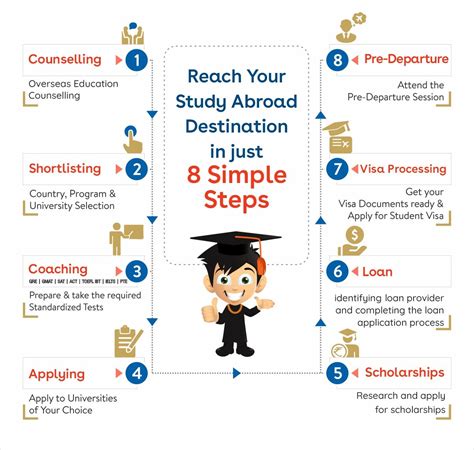As a student, choosing the right place to pursue your education is a crucial decision that will shape your future. With countless options available, it can be overwhelming to determine which institution and location best align with your academic goals and aspirations. This comprehensive guide will provide you with all the information you need to make an informed decision on where to study.

Factors to Consider
Before embarking on your quest for the perfect study destination, consider these key factors:
- Academic Reputation: Research the reputation of different universities and colleges. Consider their rankings, faculty, and research output.
- Program Offerings: Ensure that the institution offers the program you wish to pursue, along with the necessary specializations and electives.
- Location: The location of your study destination can significantly impact your experience. Consider living costs, safety, cultural attractions, and job opportunities.
- Tuition and Fees: Tuition costs can vary widely between institutions. Determine the total cost of attendance, including tuition, fees, and living expenses.
- Culture and Environment: Choose a place where you feel comfortable and inspired. Consider the campus culture, social life, and surrounding community.
Top Study Destinations
Based on academic reputation, program offerings, and other factors, the following countries and cities are renowned study destinations:
- United Kingdom: Oxford, Cambridge, London
- United States: New York City, Boston, Berkeley
- Canada: Toronto, Vancouver, Montreal
- Australia: Sydney, Melbourne, Perth
- Germany: Berlin, Munich, Heidelberg
Types of Institutions
Depending on your academic needs and preferences, you can choose from a variety of institutions:
- Universities: Offer a wide range of undergraduate, graduate, and professional programs.
- Colleges: Provide a more intimate learning environment, typically offering four-year bachelor’s degrees.
- Community Colleges: Offer associate degrees and technical programs, which can prepare you for further study or a career.
- Online Schools: Provide flexible and accessible learning options through virtual platforms.
Applying and Enrolling
Once you have selected a few potential study destinations, it’s time to apply and enroll. The application process typically involves:
- Submitting transcripts and test scores
- Writing a personal statement or essay
- Providing letters of recommendation
- Paying an application fee
After you have been accepted, you will need to:
- Confirm your enrollment
- Secure housing
- Obtain a student visa (if necessary)
Tips for Choosing the Right Study Destination
- Explore your interests: Identify what you are passionate about and look for programs that align with your goals.
- Research thoroughly: Gather information from university websites, rankings, and alumni reviews.
- Visit or contact universities: Attend campus tours or reach out to admissions officers to learn more about the institutions.
- Consider your budget: Determine the total cost of attendance and explore financial aid options if necessary.
- Trust your instincts: Ultimately, the best study destination for you is the one where you feel motivated and supported.
FAQs
1. What is the best time to apply for admission?
Most universities have rolling admissions, but it is generally recommended to apply early in the fall semester for fall enrollment.
2. Can I study abroad as an international student?
Yes, many universities welcome international students. You will need to apply for a student visa and meet certain entry requirements.
3. What is the difference between an undergraduate and graduate program?
Undergraduate programs typically lead to a bachelor’s degree, while graduate programs lead to a master’s or doctoral degree.
4. How much does it cost to study abroad?
Tuition and living costs vary widely depending on the country and university. Research different options to find a program that fits your budget.
5. What are the benefits of studying abroad?
Studying abroad offers a unique opportunity to expand your knowledge, develop global perspectives, and gain valuable life experiences.
6. Can I work while studying abroad?
Depending on your student visa, you may be able to work part-time or during semester breaks.
7. How can I find scholarships for studying abroad?
There are various scholarship programs available to support international students. Explore your options through university websites and scholarship databases.
8. What is the best way to prepare for studying abroad?
Start by researching your destination, learning a few basic phrases of the local language, and immersing yourself in the culture.
